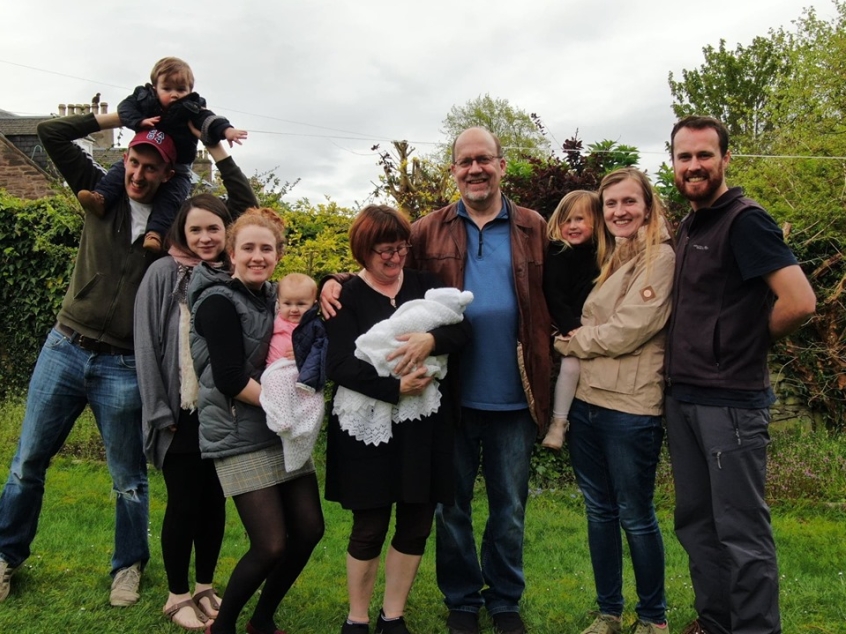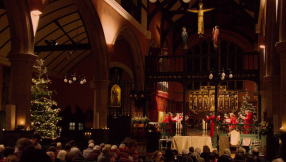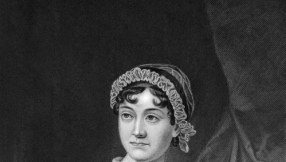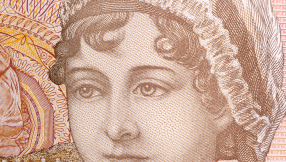
For 27 years, David Robertson was pastor of St Peter's Church in Dundee but thanks to a popular blog - the Wee Flea - and regular media appearances, his influence reached far beyond the city on the shores of the Tay in Scotland.
Now it's going global following a surprise move to Sydney, Australia, this year. He's not there to soak up the sun - although given the wet summer Scotland's been having this year, he'd be forgiven for doing so. Rather, he's there to start an ambitious evangelistic project called Third Space at the City Bible Forum.
As the name suggests, at the heart of the project is the belief that people may not be prepared to attend church, but they are open to 'spaces' where they can discuss ideas - including ideas around Christianity.
He speaks to Christian Today here about the big move to Oz, his hopes for Third Space and a little bit of Brexit thrown in for good measure.
CT: You were a bit of a go-to spokesperson for conservative evangelicals in the Scottish media. What prompted the move to Australia?
David: There are push-pull factors. I was pastor at St Peter's for 27 years. The church had grown enormously from about seven people to 300. We had planted a church in St Andrews and my son is doing a plant in a housing scheme in Dundee. In addition to that, I did a lot of outreach and evangelism and it was bearing fruit but I felt like a dart player throwing 12 darts at the board and hoping that one or two would stick, only to find that everything was sticking and it was becoming too much.
I had to decide whether to continue with the wider evangelism or focus on the local church. I see the local church as vital but with the church having grown to the size that it did, I knew I couldn't do both.
I was out in Australia on a sabbatical and City Bible Forum in Sydney liked the ideas I had and invited me to do them there. I have a love for Scotland and the UK and to leave was a really hard thing to do, so initially I said no, but the more I thought on it the more I felt this might be the right thing to do. It did feel a bit like jumping off the cliff and not knowing where I was going to land!
CT: What's your remit at City Bible Forum?
David: I'm director of a project I've set up called Third Space. The 'first space' is the church and the 'second space' is the culture. I believe that in countries like the UK and Australia, more people are open to Christianity in the general culture but the Church is having difficulty communicating it.
In biblical terms, it's inspired by Acts 17. We're saying to churches: where's your Athens? Where can you meet with non-Christians? That is the 'third space'.
For most people, it's not the case that standing on a street corner yelling at them is going to work. For some people, open air street evangelism may still work like it did in the days of Wesley, but for most people that's not the case.
So churches can find the space where they can communicate the Gospel and where people can hear it effectively. That may be in a cafe listening to a talk or coming to hear a debate. The media would be another 'third space'.
The key question is: where is the space that the church can create that people can come into?
In that sense, it's an evangelism project. For most churches, evangelism is not in the DNA. But we want to help with that.
CT: So it sounds like you see lots of opportunities.
David: There is an open door in our culture just now to communicate the Gospel but it's a bit like Indiana Jones approaching the Temple of Doom, there are shifting sands culturally and we have to understand where we are culturally.
But the church has a solidity, if you will, that enables it to cope with the shifting sands and go through the open door and in that sense it's like living stones.
Now, for those who are not Christian, they want stability, they're very confused about a whole lot of things, but at the same time they don't want rock rigid or to feel like they're in a cult! They want something living. We are living stones. That means it's organic.
Culture keeps changing and there are some things you can't say at work now that three years ago would have been normal. There's a whole mass of confusion, whether it's the child asking 'am I a boy or a girl?' or the adult asking 'what on earth is going on in politics?' or 'what's going on in my work?' or 'what's happening in the world?'.
The shifting sands are our culture but the Bible has something to say to that and the Church can offer an open door for people to come into this space to discuss and investigate without signing up.
We're not asking people to join the church - at least not initially. They can just investigate and find out.
CT: Having gone from Scotland to Australia, how does the spiritual situation in the two countries compare?
David: It's not as bad in Australia as the UK. I thought it would be more secular but it's much better spiritually. The UK is regressing more and more into a Greco-Roman, pagan worldview. Australia at the moment is about 10 years behind us in the downward slide.
Australia is also very much an Asian country. In some places there are as many Chinese shop signs as there are English and that's how it is in the churches as the Chinese are the most open to the Gospel. And Sydney Anglicans are very biblical. Almost every Anglican church is evangelical.
There is a programme in Australia called Q&A - it's a bit like Question Time in the UK - and one person on the panel was asked whether they thought the election of [Prime Minister] Scott Morrison was an answer to prayer. That question would never be permitted to be asked on the BBC or if it were, it would be laughed off the show. But the question was treated with a respect by the panellists that shocked me.
In the UK, we can be a bit snobbish towards Australia and see it as a place where criminals were sent, but I wonder whether as Christianity shifts to the Pacific rim, Australian Christianity might have a key role to play. It certainly at the moment is having a key role in Anglican evangelism and evangelicalism throughout the world.
So, there is the same secularism here and there are a lot of the same problems that we face in the UK but they're not as far down the road as the UK. In the UK, without a renewal and a revival, I cannot see how the Church can recover, whereas in Australia I think all it really needs is a reformation.
In that sense, I think the spiritual situation is much more serious in the UK. As Martin Lloyd Jones said, the demons are in too deep in the UK. I'm not sure they're in that deep here in Australia. That's not to say God isn't working in the UK or can't step in and turn it all around. He's done it before and can do it again. It's certainly been in a worse condition in the past, but that is the trend at the moment.
CT: At the moment, the big case for Christians in Australia is the case of Israel Folau, the rugby player dismissed for his social media post about homosexuals. What's your take on that?
David: From my point of view it's a free speech issue so I don't care if Israel Folau is a Mormon, a Moonie or whatever; he should have the freedom to say what he wants to say and people should have the freedom to disagree and say it's ridiculous.
The trouble with the Israel Folau case is that it's like people are just shouting at each other. On one side, there are people saying it's about homosexuality, which it's not. Then on the Christian side, people are saying it's about religious freedom and Israel Folau is being treated as a Christian hero.
From my point of view, he's not exactly a Christian hero as he belongs to a sect that denies the Trinity. At the same time, I'm not going to condemn him because he should have the right to speak.
I think this is where there is a clash of views because the notion that you would defend the right of someone to speak who you disagree with is quite a strange one in today's culture. But I think that's what we should be doing. I don't agree with Islam but I think Muslims should have the freedom to practise their religion and evangelise and preach and teach their doctrines - within the law of course.
CT: It seems like the goalposts are shifting more and more in favour of certain groups' free speech and further away from people with a conservative worldview. At least in the UK, it appears to becoming the case that you can hold a view in private so long as you don't express it in public.
David: I think what's happening here is that the state is replacing God in many people's eyes. The state is telling us what to believe and giving us doctrines and it's saying you don't have to believe them but if you don't you'd better keep it quiet.
The state - and the big biusiness corporations - are saying 'no, you have to believe this and believe this' and they are far more authoritarian than the Church has been throughout most of its history, except for maybe the Spanish Inquisition. And there is a secular inquisition coming now.
I think that one of the encouraging things in Australia is that Scott Morrison is a Pentecostal. Unremarkably, he was seen going to church but he didnt make a big deal of it and didn't use it. But a lot of people believe it was the religious liberty thing that swung the election his way. And the kind of extreme liberalist - I call it illiberal - progressivism took a real hammering.
I think in the UK it's like this too. In certain areas of academia and the media, there are people who only ever talk to themselves and they think their view is the only one and everyone else is a fascist or wrong.
I think the Church is actually extremely good at encouraging a diversity of viewpoints and tolerance because it doesn't compel Christians to believe a certain thing. But secularists are quite happy to say to people: do your religion but do it like you do a knitting club, do it in the privacy of your own home and don't ever say it in public!
It's exactly this notion that I've been arguing against. I've been saying: no, we should have the freedom to say that marriage should only be between a man and a woman or that it's not good to kill an unborn child.
That's where the secular intolerance is coming in.
CT: What would you say is the number one thing that the Church in the UK needs to be doing?
David: It's very straightforward. You need to remain faithful to Christ by remaining faithful to His Word, the Scriptures. That avoids two traps. One is liberalism, whereby people try and accomodate the Bible to the culture and read the Bible through the culture. We can't do that. We have to be much more radical than that.
The second trap is legalism where we can't say this and we can't say that. Legalists believe in the Bible but put up a whole wall of defences up around it and those walls become unbiblical.
So we have to avoid liberalism and legalism and we have to remain faithful to the Scriptures and proclaim Christ through His Word in the culture.
For me, that's evangelism, proclamation, prophetic utterance because at the end of the day the Gospel is good news that is like providing beautiful, clear water to a dry land. In the UK, there is a famine of hearing the Word of the Lord and that famine needs to be dealt with.
CT: Nicola Sturgeon is leading a very liberal Scottish government and has been very proactive in advancing the transgender agenda.
David: I've been dealing with this for years and it's interesting because now there are Scottish Government ministers and SNP politicians who are pushing back against their own Government and I think they've gone too far.
I don't think that Nicola Sturgeon is a bad person; I just think she doesn't know what she's doing and is fundamentally ignorant of a large number of issues including the whole gender queer theory stuff and she thinks it's just a nice thing to do. But this issue will destroy her Government.
CT: One of the things you were also quite outspoken on was Brexit and your support for leaving the EU. How do you feel now standing on the outside of the UK looking in on that debate?
David: Being here in Australia makes me more convinced than ever that we should get out. Here again there's a divide, people who consider themselves liberal progressive who put Brexit and Donald Trump and all these things together and call it populism. Looking from the outside, honestly I'm quite embarrassed and ashamed that our politics is so trivial at times.
In the modern world, there's no reason why we need to be in one mega powerblock. I think people look at our politics and think it's crazy. They don't understand how we voted for something and then the Parliament won't do it. Some will adopt the philosophy of 'well, it can't be done'. Like The Hotel California, you can check out any time you want but you can never leave. Look at Australia. It became independent of the UK but in many ways it is still very British.
And the world's a small place. I can fly to Glasgow in 24 hours from Sydney, I can talk to people around the world over Skype, I'm still doing radio shows in the States and the UK. It's still important to meet people physically but the world has shrunk a lot.
CT: Your son is still ministering in Dundee so it's quite a big separation for you as a family after living close by to each other for so many years.
David: He's doing a church plant in an urban housing area and I'm very proud of him for doing it because he's a very gifted preacher and leader and instead of going to a big church, he's in one of the poorest housing schemes and God is using and blessing that.
He's living in the housing scheme and has set up a church in a shop that acts like a community centre and they do Bible study and preach the Gospel and people are becoming Christians.
That is wonderful because Dundee has many needs, there is a lot of homelessness and there's a huge drug problem. Scotland was recently revealed to be the number one country in the Western world for drug deaths and I guarantee Dundee is the number one city.
Everyone says we should provide drug clinics and I do think we should provide rehabilitation, but it's not just how you deal with the drug addiction that's the issue. We're not asking why people are taking drugs in the first place and a huge part is the dysfunctionality of families and people growing up without love, people being abused, and people told that there's just sex and money and alcohol and drugs to give you satisfaction in life. That's atrocious and that's where the Gospel comes in.
But a huge issue connected with the drug situation is that numerous people then have mental health problems. That is the ticking time bomb that is going to cause a disaster in the UK and particularly in poor areas.
CT: What's your long-term plan? Is the move to Australia permanent?
David: I have a two-year visa and the intention is to try to get this off the ground. My intention is to come back to the UK but I'm a 'James Christian', by which I mean: who are you to say what you will do this year or next year?
Ever since I was seriously ill in 2011, I have had difficulty planning ahead a week nevermind two years, so I'm not going to say what will be happening in two years. But my intention is to come back. We'll see what happens and how the Lord uses it.
It's a huge risk for them and for City Bible Forum. I could fall completely flat on my face here and it could be a complete disaster or it could work really well. The only way we'll find out is to try.













